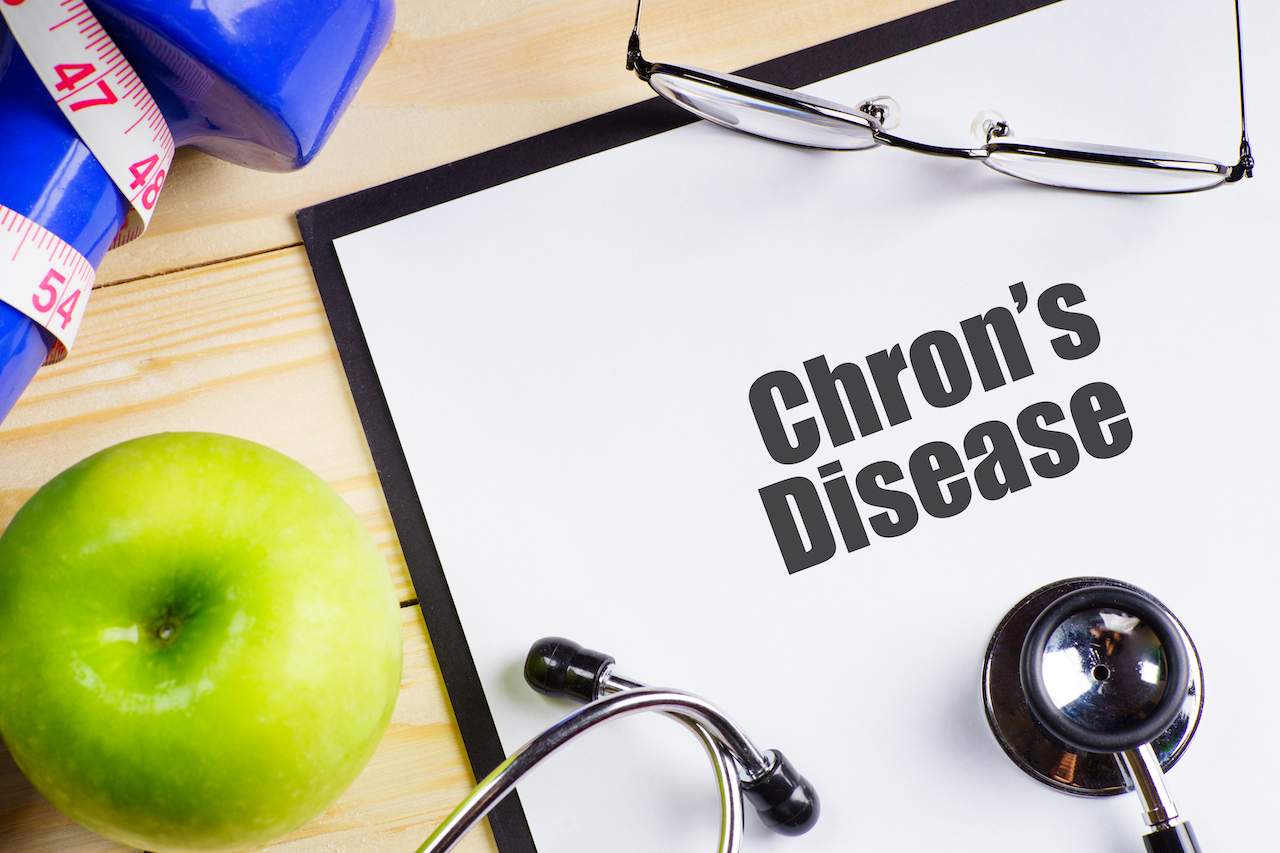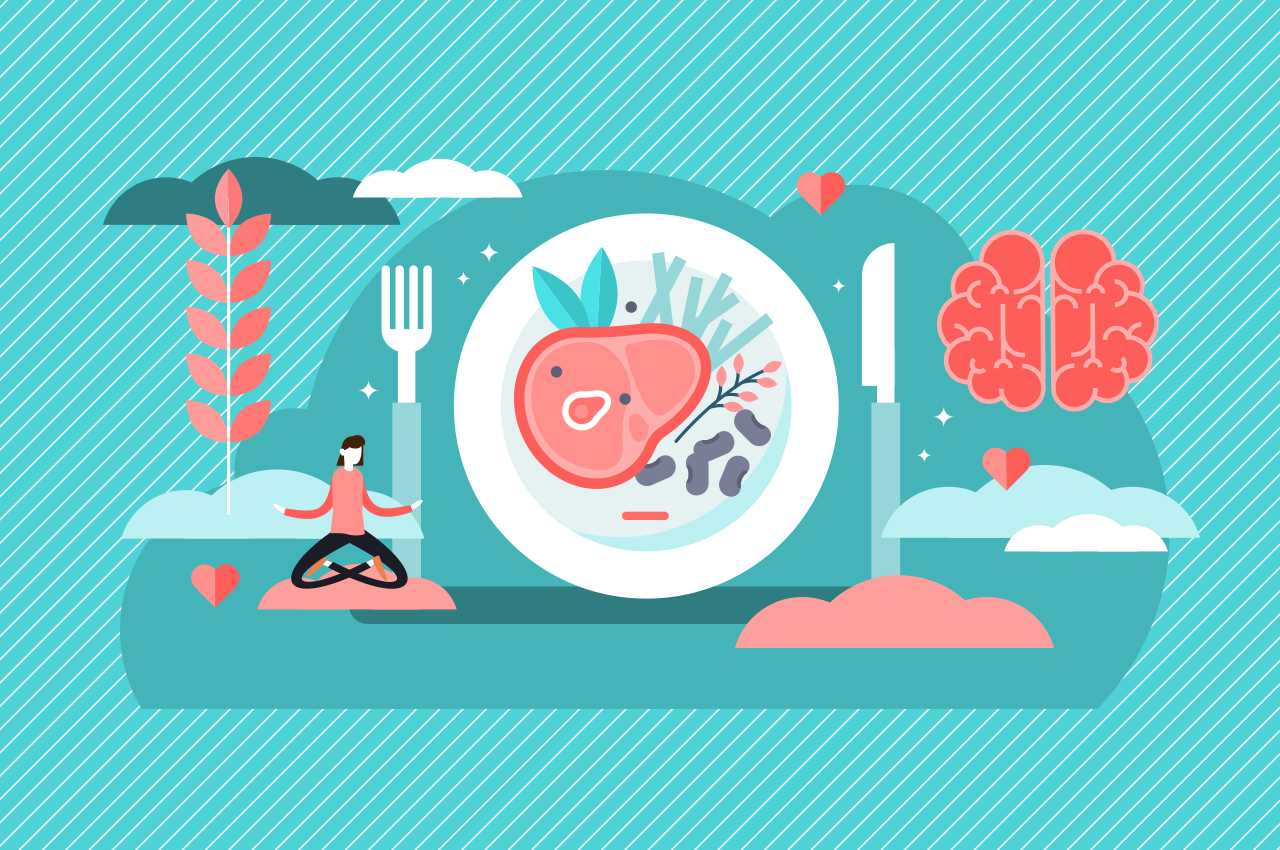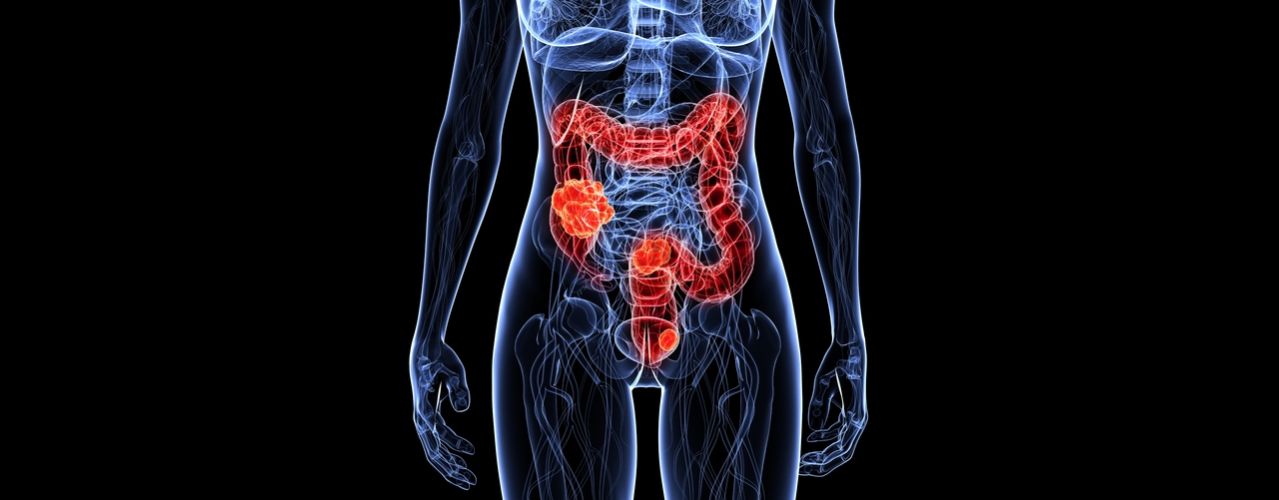Along with ulcerative colitis, Crohn’s disease is one of two forms of inflammatory bowel disease (IBD). With both diseases, the immune system attacks the cells in the gastrointestinal tract, causing inflammation, sores, bleeding, cramps and diarrhoea.
Crohn’s disease differs from ulcerative colitis in that it can affect almost any part of the digestive system, while ulcerative colitis almost always affects the large intestine. Crohn’s disease can also penetrate the entire bowel wall. Ulcerative colitis only involves the innermost lining of the colon.
Both conditions are chronic diseases: they persist over time and, to date, there isn’t a cure for either of them. The good news is that it’s possible to lead a full, happy, productive life if you have Crohn’s disease.
Am I at risk?
IBD was long believed to mainly affect younger people, often starting between the ages of 13 and 30. But researchers now know that 10-30% of people living with IBD are over the age of 60, and many are only diagnosed after 60.
Historically, IBD occurred mostly in white populations, particularly in people who lived in North America and Europe, and much lower rates were seen in black and Asian populations. Recent reports, however, show that the incidence of IBD is on the rise among African and Asian populations as these societies increasingly adopt a western lifestyle.
Crohn’s disease affects about 0.3% of the population in developed countries (like Germany and Canada). Men and women are equally likely to be affected.
Crohn’s disease symptoms
Crohn’s disease shares the following symptoms with ulcerative colitis:
- Diarrhoea
- Fever
- Weight loss
- Anaemia
- Food intolerances
- Malnutrition
In both Crohn’s disease and ulcerative colitis, symptoms occur outside of the gastrointestinal tract (affecting the skin, joints, eyes, liver and other organs). Even though symptoms vary widely among people affected by Crohn’s disease, the most common symptoms are:
- Diarrhoea
- Cramping/pain in the abdominal area
- Weight loss
Bleeding from the rectum is also a possibility.
What causes Crohn’s disease?
The causes are still not clearly understood, but researchers know that it involves an interplay between genetics, your immune system and the environment.
The following factors may trigger the disease if you’re genetically susceptible:
- Smoking
- Regularly using non-steroidal anti-inflammatory drugs (NSAIDs) such as ibuprofen and aspirin
- Using the contraceptive pill
- A high-fat diet
- Certain viruses and bacteria
- Stress
If you’re over the age of 60, certain physical and lifestyle changes can put you at risk for Crohn’s disease. These include decreased bowel movements, nutritional changes linked to a decreased sense of smell and taste, dental decay, increased use of medication and difficulty swallowing.
How Crohn’s disease is diagnosed
Your doctor will diagnose Crohn’s disease after taking your medical history, doing a physical examination, and conducting lab and imaging tests (X-rays or scans to look at the upper intestine).
Your doctor may also want to do a colonoscopy, which examines the lower intestine.
Treatment for Chron’s disease
If left untreated, Crohn’s disease may lead to intestinal blockages, diseases of the anus and rectum, and colon cancer. So, it’s important to work closely with your doctor to manage your condition.
Your treatment plan may include:
- Medication (e.g. corticosteroids, anti-inflammatory medicines, immune-suppressants, antibiotics).
- Changes to your diet (e.g. only eating foods that are well tolerated and taking vitamin and mineral supplements).
- Surgery to remove affected parts of the bowel or to open parts that have become blocked.
Your doctor will also advise you to quit smoking (if applicable) and to avoid NSAIDs.
Taking care of your condition depends on which part of the gastrointestinal tract is infected, how sick you are, and whether your doctor is aiming to induce or maintain remission.
Some people go through long periods of remission when they don’t experience any noticeable symptoms. This will be your treatment goal, too.
Speak to your doctor about the treatments and lifestyle changes that are best suited to you and remember to take your medication exactly as prescribed.
References:
- Mahan Escott-Stump Raymond. Krause’s Food and the Nutrition Care Process, 13th Elsevier.
- https://academic.oup.com/ecco-jcc/article/9/6/507/481593
- https://www.niddk.nih.gov/health-information/digestive-diseases/crohns-disease/symptoms-causes
- https://medlineplus.gov/crohnsdisease.html
- https://www.uptodate.com/contents/crohn-disease-in-adults-the-basics?topicRef=4069&source=see_link
- https://www.sages.co.za/ChronDisease/index
- https://journals.plos.org/plosone/article?id=10.1371/journal.pone.0104859
- http://www.crohnscolitisfoundation.org/what-are-crohns-and-colitis/what-is-crohns-disease/
- http://www.crohnscolitisfoundation.org/resources/epidemiology.html
- https://www.ncbi.nlm.nih.gov/pubmed/29050646
- http://www.crohnscolitisfoundation.org/assets/pdfs/living-with-crohns-disease.pdf




